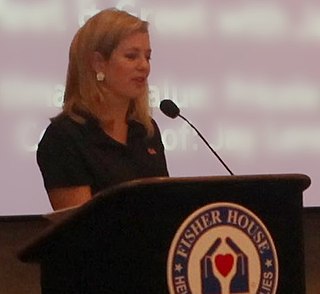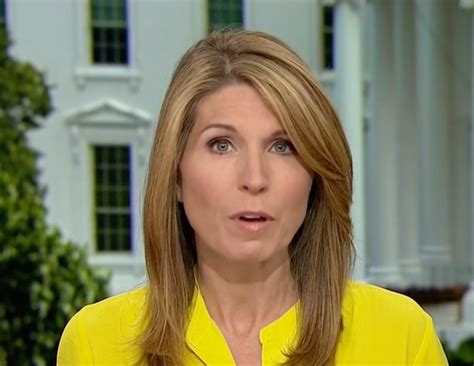A Quote by Brianna Keilar
The White House wants us talking about racism and the justice system because they use it as a springboard to scare Americans about looting, aided by Fox News running episodes of violence on an incessant loop, that their hearts and minds won't be able to look past the fear to see injustice.
Related Quotes
In 1996 or 1997, out of nowhere, Fox News comes on and it's on channel 360 on Direct TV, and out of 300 million Americans, on every single night, anywhere from 3 to 5 million watch it, we're talking about at no more than 2 percent of the American public is watching Fox at any given moment. Yet, ABC, CBS, NBC, the New York Times, the institutional left, CNN, MSNBC, the record companies, Hollywood, all seem to be committed towards aligning their minds and their money and their other resources to try to shut up Fox News.
We don't like to use the phrase "state security" in the United States because it reminds us of all the bad regimes. But it's a key concept, because when these officials are out on TV, they're not talking about what's good for you. They're not talking about what's good for business. They're not talking about what's good for society. They're talking about the protection and perpetuation of a national state system.
I think that we need to have an honest conversation in this country. This idea that somehow we're beyond sexism, beyond racism is just wrong. And this is where having an honest conversation with white men about their issues and their concerns, and having honest conversations about the experiences that African-Americans are still having, despite who's the president of the United States, in the criminal justice system that we see in sentencing, we see in policing and a lot of these issues.
I think, at some level, we see young people all over the country mobilizing around different issues, in which they're doing something that I haven't seen for a long time. And that is, they're linking issues together. You can't talk about police violence without talking about the militarization of society in general. You can't talk about the assault on public education unless you talk about the way in which capitalism defunds all public goods. You can't talk about the prison system without talking about widespread racism. You can't do that. They're making those connections.
God gave us minds to think with and hearts to thank with. Instead we use our hearts to think about the world as we would like it to have been, and we use our minds to come up with rationalizations for our ingratitude. We are a murmuring, discontented, unhappy, ungrateful people. And because we think we want salvation from our discontents.
I see racism as institutional: the rules are different for me because I'm black. It's not necessarily someone's specific attitude against me; it's just the fact that I, as a black man, have a much harder time making an art-house movie and getting it released than a white person does about their very white point of view. That's racism.
When we speak about a culture of violence in the American society, we're not just talking about the mass killers. We're also talking about that we, as a society, and many of us as individuals accept violence as part of life because we have become numb to it, being so exposed to it in various forms of media.
This film isn't about "white racism", or racism at all. DEAR WHITE PEOPLE is about identity. It's about the difference between how the mass culture responds to a person because of their race and who they understand themselves to truly be. And this societal conflict appears to be one that many share.
When you talk about "white privilege", you're talking about something systemic. When you're talking about "black privilege" it's something spiritual because we as black people tap into a divine system that a lot of other cultures and races can't tap into and that system allows us to prosper in spite of everything that's been thrown our way from slavery to segregation to mass incarceration. We have a privilege pre-ordained by God that nothing and no one can stop.
































